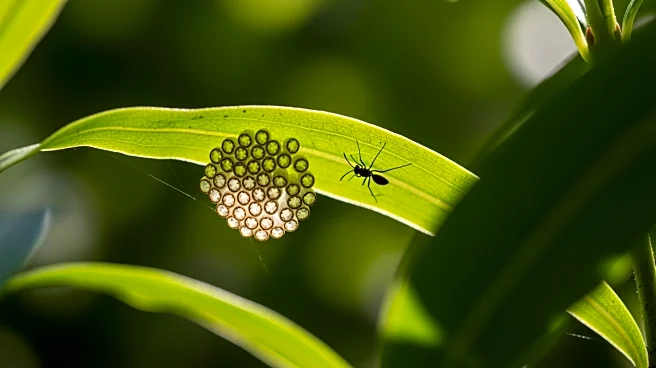What's Happening?
Parasitoids, a unique group of insects, play a significant role in ecosystems by parasitizing other insects during their life cycle, ultimately leading to the host's death. Unlike parasites, which maintain a long-term relationship with their host, parasitoids
exploit their host at a specific stage, causing its demise. This article delves into the fascinating world of parasitoids, highlighting their ecological impact and the eerie dynamics of their interactions with hosts.
Why It's Important?
Understanding the role of parasitoids is crucial for ecological research and biodiversity conservation. These insects contribute to the regulation of host populations, influencing the balance of ecosystems. Their study can provide insights into natural pest control methods, potentially benefiting agriculture and reducing reliance on chemical pesticides. The article also sheds light on the complex interactions within insect communities, offering a deeper appreciation of nature's intricacies.
Beyond the Headlines
The study of parasitoids raises ethical and scientific questions about the manipulation of natural processes for human benefit. Researchers must consider the potential consequences of introducing or managing parasitoid populations in ecosystems. Additionally, the article highlights the cultural fascination with the macabre aspects of nature, as seen in the comparison to body-snatchers and zombies.















